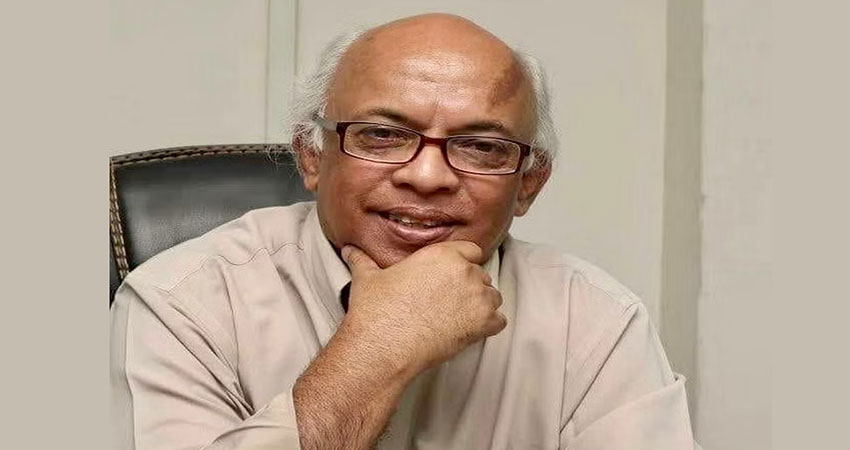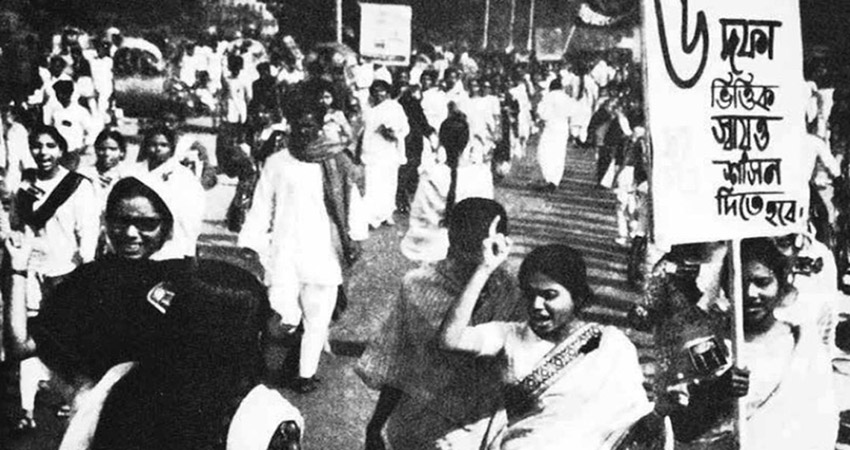After two years, devout Muslims all over the world including Bangladesh are getting the chance to go for Holy Hajj again. Due to the COVID-19, Saudi Arabia has not allowed foreigners to take part in the Hajj for the past two years without a Saudi citizen. This time, they have changed the decision and in 2022 (1443 AH), the Saudi government has decided to allow one million pilgrims to perform Hajj. About one lakh people from Bangladesh take part in Hajj every year. However, this time 57,585 people will be able to take part in Hajj from Bangladesh. According to the Saudi Ministry of Hajj and Umrah, pilgrims must be under 65 years of age and have been vaccinated with a full dose of coronavirus. With that, you have to be a negative certificate of PCR test within 72 hours of leaving for Saudi Arabia.
Hajj is one of the five pillars of Islam and it is obligatory on those who are financially and physically able to perform Hajj once in a lifetime. In Islamic terms, Hajj is the completion of certain places, such as the Baitullah and the associated places, at certain times in accordance with the rules of the Shari'ah in order to please the Almighty Allah.
The literal meaning of Hajj is to intend to travel for the purpose of visiting something and desire or determination to travel for the purpose of visiting Kaaba in Islamic Sharia language. Hajj is the fifth of the five pillars of Islam. The Prophet (PBUH) said, Islam is based on five pillars and one of those is performing Hajj to the House of Allah. (Bukhari and Muslim)
Hajj is one of the most important acts of worship for the wealthy and Allah the Almighty says that it is obligatory for a person who is able to go to the Ka'bah to perform Hajj to that house for the sake of Allah. In spite of this, whoever disobeys it is a disbeliever. Allah is not dependent on anyone in His created world (Al-Imran, 97). Hajj has been made obligatory on the wealthy people by this verse, so to deny or disobey this Hajj is unfaith (Kufr).
About four and a half thousand years ago today, by the command of Allah, Hazrat Ibrahim (AS) first introduced Hajj. Since then, the rule of performing Hajj has been passed down in the tradition of the Prophet and the Messenger. Hazrat Muhammad (PBUH) has declared that Hajj is obligatory for able-bodied Muslims.
Before the introduction of Hajj, Hazrat Ibrahim (AS) rebuilt the Kaaba with his son Ishmael (AS) by the command of Allah. Note that the Kaaba was first built by Hazrat Adam (AS) with the help of angels. With the help of Hazrat Ibrahim Jibraeel (AS) on the same foundation i.e. Hazrat Adam (AS) rebuilt it on the site of the Kaaba built by. When the construction work was completed, Ibrahim (AS) was instructed to perform Hajj.
Allah informed him about all the rules of Hajj through Hazrat Jibraeel (AS). Ibrahim (AS) circumambulated the Ka'bah seven times with his son Ishmael (AS), kissed Hazrat Aswad (holy stone) and performed all the rules of Hajj one by one. Then Allah's command came to convey the message of Hajj to the world.
Hazrat Ibn Abbas (RA) narrated from, 'When Hazrat Ibrahim (AS) was ordered to declare Hajj to be obligatory, he prayed to Allah, it is a desert without people. There is no one here to hear the announcement. How will my voice reach where there are dense settlements? Then Allah said, "Your duty is only to announce. It is my responsibility to reach out to the whole world". Hearing this, Hazrat Ibrahim (AS) then stood in Makkah and announced. May Allah exalt it. Thus Makkah became a place of pilgrimage and this Hajj is one of the most beautiful scenes of the great gathering of the world Muslim Ummah.
Regarding Hajj, Allah says in the Qur'an, "And for the sake of Allah, the Hajj of this house is obligatory on the person who can afford to come here." And whoever denies it (let him know that) Allah is not dependent on the people of the world' (Al-Imran). He added, 'And complete Hajj and Umrah for the sake of Allah. But if you are hindered, then sacrifice whatever is readily available '(Baqarah). This verse claims that Hajj is obligatory as well as Umrah is obligatory, as most of the Sahabi and Ulama have said.
The Prophet (PBUH) has discussed the virtues of Hajj in several hadiths. Narrated Ibn 'Umar, The Prophet (PBUH) said, Islam is founded on five pillars: (1) To bear witness to Tawheed and Prophethood that there is no god but Allah, (2) to establish salat, (3) to pay zakat, (4) to perform Hajj and (5) to observe the fast of Ramadan. Narrated Abu Huraira (RA), he said, the Prophet (PBUH) said, 'The person who has performed Hajj for the sake of Allah. In which he did not speak obscenely or did not commit obscene acts, he will return to Hajj just like the day (in a state of innocence) when his mother gave birth to him, just as a child is born free from sin.
At the end of Tawaaf, after two rak'ats of Salat (prayers), go out of Matbaaf and there is a well next to it. Go there and drink the water of Zamzam as Bismillah and give some to your head. Regarding the water of Zamzam, Rasulullah (PBUH) said, 'The best water on the surface of the earth is the water of Zamzam. This includes nutritious food and disease relief and according to another narration, it is blessed. The Prophet (PBUH) further said, 'If you drink this water for the purpose of curing any disease, Allah will cure you. If you seek refuge by drinking it, Allah will give you refuge. And if you drink it to satisfy your thirst, Allah will do it.
Hajj is a conference of the great unity of the entire Muslim nation, so that the Muslims of the whole world find a way to forget the differences of blood, caste, language and geographical boundaries and become one. Through this, the image of brotherhood and equality of the world Muslim Ummah emerged. It creates a sense of faith and Islamic consciousness among Muslims.
The speech that the Prophet (PBUH) delivered at the gathering of about one and a quarter lakh people in the desert of Arafat on the afternoon of Friday, 9 Zilhaj, 10 AH, at the end of the vigil of the soaked devotees, is historically known as 'Farewell Hajj Speech' in the history of Islam. From the beginning to the end of creation, this speech is the best of all the speeches of the past world. There is no aspect of the liberation of world humanity that has not been touched by this precious speech. Basically, the Farewell Hajj speech is the essence of the Prophet's (PBUH) 23-year prophetic life. Apart from that, this speech was the final solution to the situation and problems that have arisen in the perilous world since the death of the Prophet (PBUH) till the Day of Resurrection. This speech was a complete and practical program to establish world peace. Hazrat Adam (PBUH) is the continuation of the process and outline of the evolution of IslamIt started from, its full development and ended through this speech. Less than three months after this speech, our prophet (PBUH) left this mortal world and moved to the immortal world. Standing at the crossroads of life and death, he took the confession of fulfilling his prophetic duty in the voices of lakhs of people. On hearing the sound of 'Al-Bida' and 'Al-Bida' in the face of the Prophet (PBUH), the sky of Arafat became heavy on that day with the cries and silent longings of the devotees. 'Did I deliver the message?' Hearing this repeated sound, only one word came out of the mouth of the devotee with melted mind and wet eyes, 'Nayam' - yes. The fullness of Islam came through this farewell Hajj speech.
So Hajj is the biggest gathering of Muslims, for no other reason has so many Muslims ever come together. It is a great responsibility and teaching of the Muslim Ummah to realize in reality the hardships and sacrifices that the Prophet Muhammad (PBUH) made in establishing the religion of peace Islam in the deserts of Arabia and it can be felt during the Hajj. Hajj not only strengthens the faith, but also serves as a means of uniting the entire Muslim world. The similarity of religious ceremonies during Hajj, the similarity of attitudes of all these things help to develop a sense of universal brotherhood among Muslims. By expanding the boundaries of geographical knowledge in all areas of the world, of all castes, of all languages and of training, erasing the wall of nationality, creating a unique example of world brotherhood. This example is not found in any other religious ceremony in the world. The Hajj is a shining example of the social, political and spiritual unity of the Muslim world.
Writer: Banker and Columnist
The Daily Citizentimes/OH/MY


















